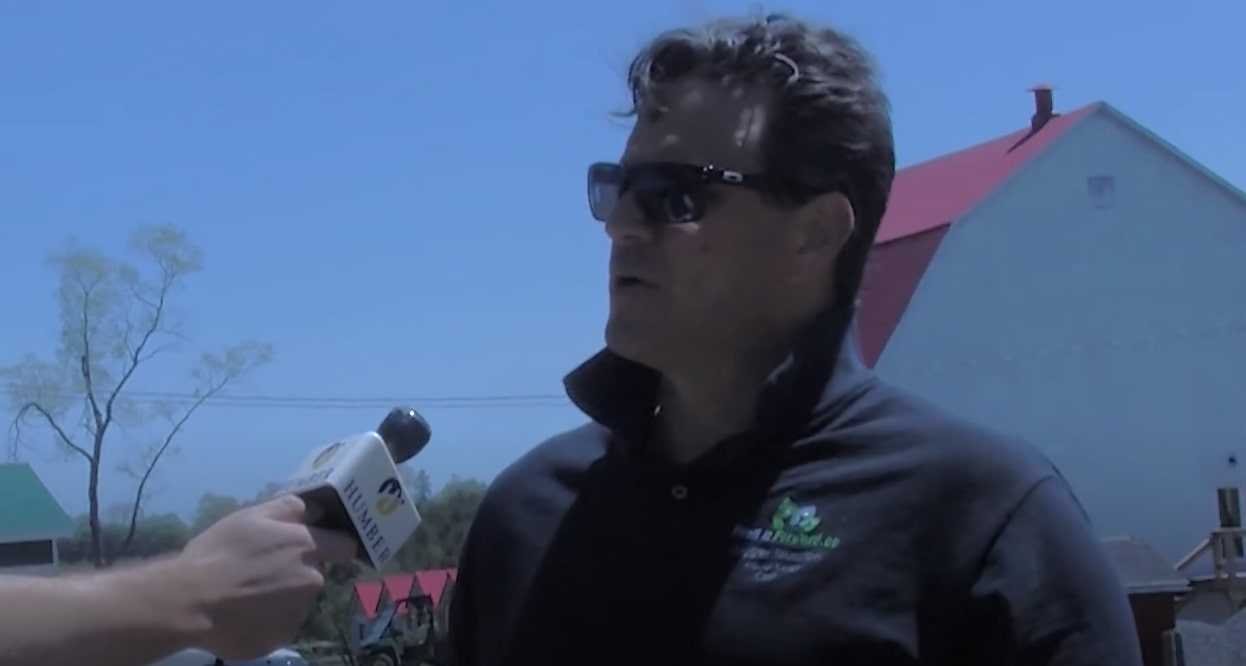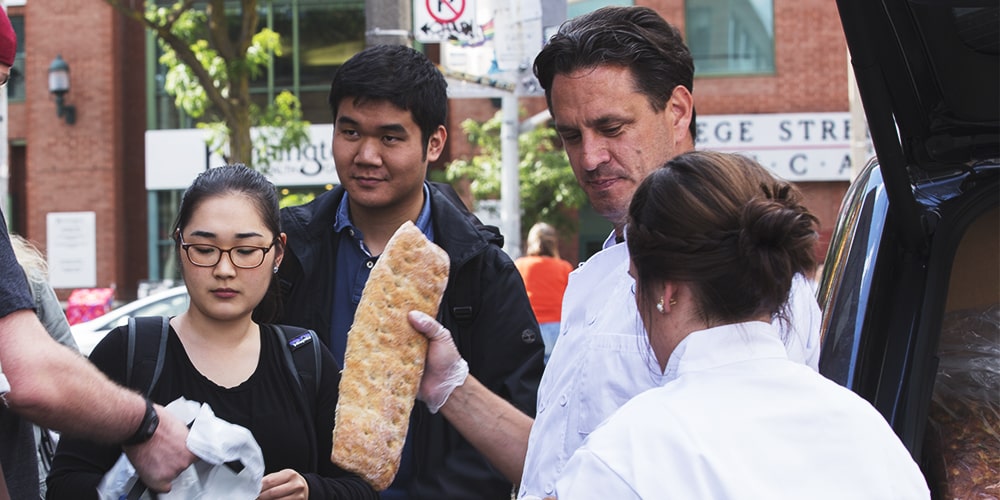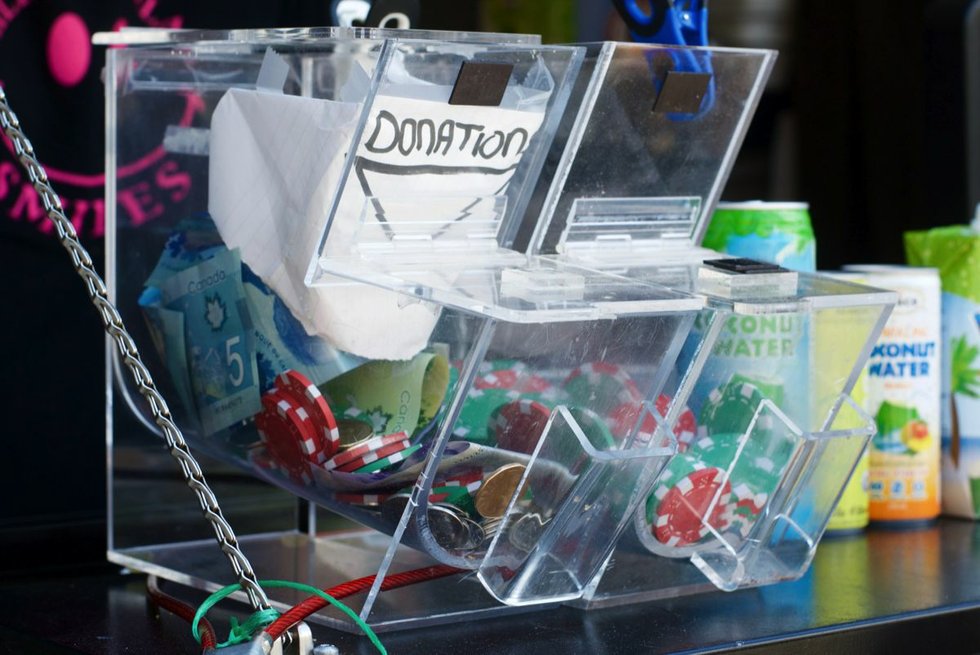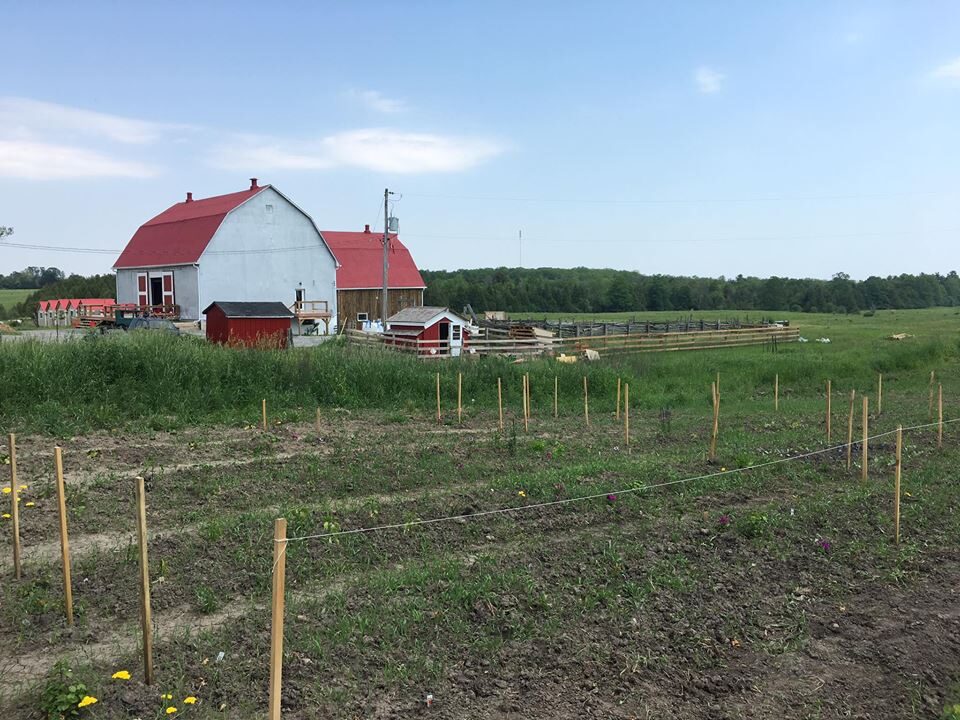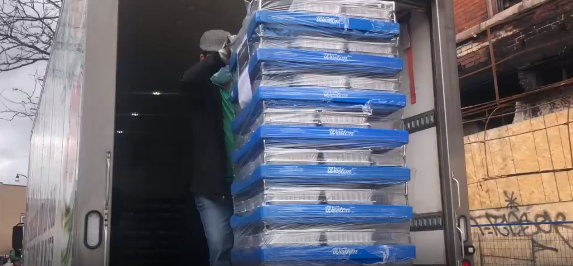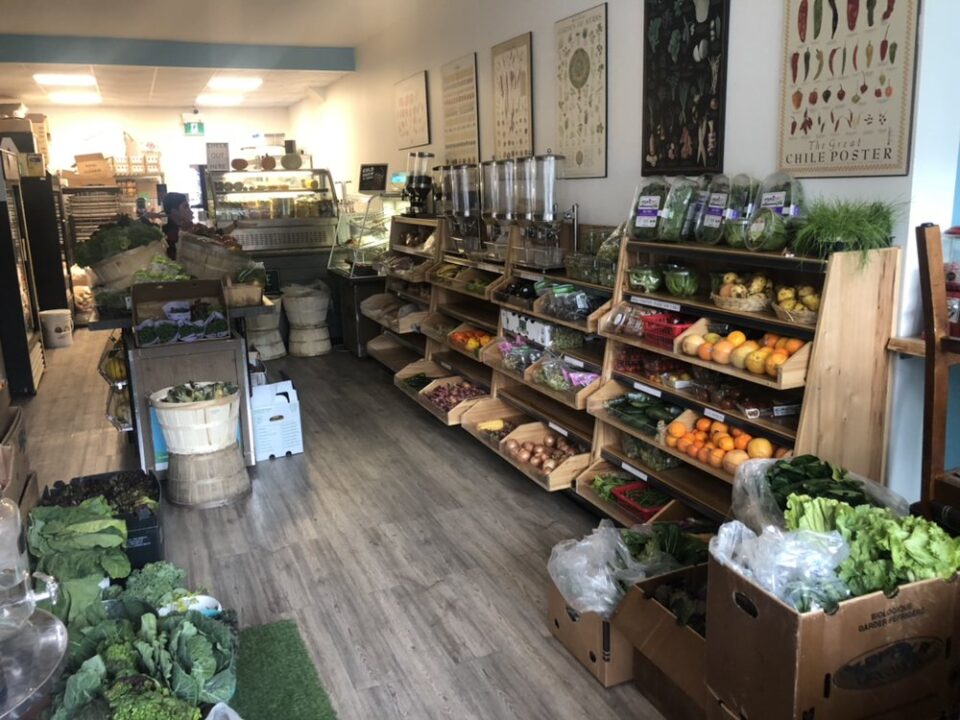If Feed It Forward chef Jagger Gordon isn’t fixing up a pot of soup inside his converted shipping-container stall at Market 707 (707 Dundas West, at Bathurst), he’s hollering out the window at passersby: “Are ya hungry?”
He coaxes folks into taking a loaf of bread from the bins lining the front of the stand, and waves off a guy who tries to buy a coconut water with a “That’s for you, man”. Everyone who pauses is treated to an elevator pitch: Everything at Feed It Forward is made from food that would otherwise be sent to a landfill, and is available for free or by donation.

“Basically, you don’t pay for anything – you just donate,” the chef explains to me, between ladling out bowls of steak and bean soup.
For every $2.50 donation made by paying customers, Gordon sets aside a poker chip that those without funds can exchange for a free meal. “That allows me to pay the bills and buy new products,” he says. “I look for products about to expire within a couple weeks or a month. The suppliers offer me a deal, and I buy it at subsidized prices and stock up with it.”

Gordon transforms that subsidized food (or, as he calls it, “marginalized food”) into soups like wild boar, roasted red pepper (a local favourite) or pho broth. He tops each bowl with microgreens he grows in a window box attached to the stall, and customers can beef up their meal with fresh loaves and rolls of donated bread from an anonymous bakery.

The soup kitchen might be Gordon’s most well-publicized project, but Gordon has a number of projects on the go under the Feed It Forward umbrella, all geared toward improving access to food. In addition to catering orders, which keep the financial engine of the business running, Gordon offers subsidized meals to families in need. His next big project, launching this fall with the University of Toronto, will provide subsidized meals for students. His goal is to use donated and diverted food to produce 25,000 to 45,000 meals per month.

In order to make that happen, Gordon says, he’s going to need to significantly increase the amount of food he can source from companies. But most large corporations tend to do what’s best for their bottom line, and instead of coordinating and transporting donations, it’s simply easier for them to throw that product away – to the tune of $31 billion in food every year, Gordon says.

“The big companies have to start jumping up and say, ‘Okay, we dump a ton a day. Why not hand it over to a nonprofit?’” Gordon says. The bakery he works with, he adds, understands that vision: “They literally sponsor me by hiring a specific driver to bring me what’s left over, out of their own pocket, because they believe that there’s going to be change. They believe in the future.”

On a wider scale, Gordon hopes the federal government will enact longer-lasting change by following the lead of countries like France and requiring businesses to donate still-usable food, either for human consumption or to make animal feed and compost. A petition can be found on the Feed It Forward site.
“I think if people understand it doesn’t take much to help, or if the government changes the laws and allows some tax incentives or tax breaks for the logistics of our donations, then the world opens up,” he says.

Source: (nowtoronto.com) https://nowtoronto.com/food-and-drink/food/feed-it-forward-market-707-toronto/
